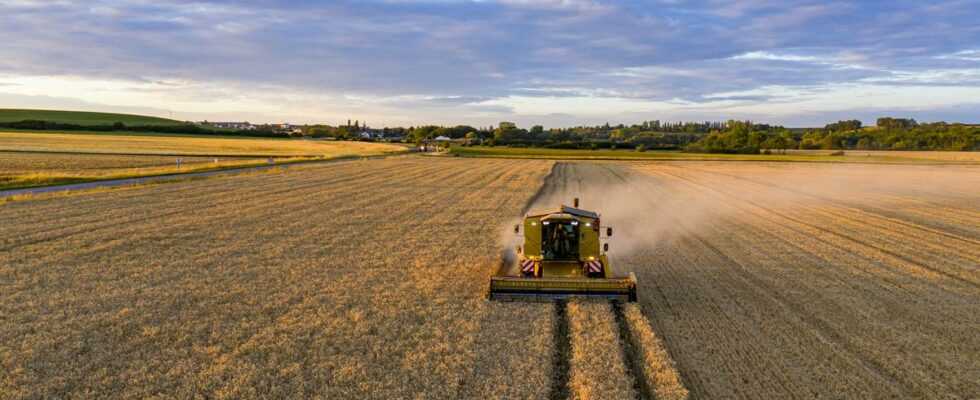“More than ever, we need to be able to store water,” pleads the FNSEA, which warns that the risks of an even greater spike in food costs in the event of a poor harvest in France.
Summer heat and insufficiently recharged groundwater: the lack of rain throughout France threatens the growth of cereals and in particular wheat, alerted Monday the FNSEA, the majority agricultural union.
Read alsoWar in Ukraine: satellite images predict a loss of a third of the wheat harvest
“No region is spared. Every day that passes, we see soils cracking. Even in the North, the cereals are thirsty. Yesterday I was with a farmer in Puy-de-Dôme, he is watering his wheat. If it continues like this, those who have the possibility to irrigate will get by, the others will have dramatic yield reductions.“, told AFP its president, Christiane Lambert. “Since October-November, there are huge droughts in Portugal and Spain, which go up in Occitania and Provence and along the Rhone Valley. What is unusual in this season is that the drought affects the north of the Loire“, she explained.
A yield loss of up to 40%
Météo-France evokesa heat episode» which, without being new, is «remarkable for its earliness, durability and geographical extent“. The 30°C mark should be reached between New Aquitaine and Provence-Alpes-Côte d’Azur at the start of the week. It will be less hot in the north of the country but just as dry. “The coming week is worthy of a month of July. We are very worried. It is a delicate period for cereals: the wheat has reached its adult size, the ear has developed and we are now at the stage of grain enlargement», explains Joël Limouzin, in charge of emergency situations at the FNSEA.
SEE ALSO – Food: “There is no increase in price but in volume”, assures the FNSEA
However, without water, the fertilizer that the plant needs to produce a quality grain, will not be able to go up the stem, “it will stay in the ground“. Without water and under the effect of heat, the grains will wither, with the risk ofa loss of yield that can go up to 40% if the weather remains dry for several weeks“, warns Joël Limouzin.
Read alsoSoaring wheat prices benefit French cereal producers
The period is complicated for wheat, more than barley which is more advanced in cultivation, and in particular in the large cereal plains of Beauce and Burgundy, he believes. “More than ever, we need to be able to store water“, Pleads the FNSEA, which warns that the risks of an even greater outbreak of food costs in the event of a poor harvest in France.
SEE ALSO – After oil, a shortage of mustard affects France
